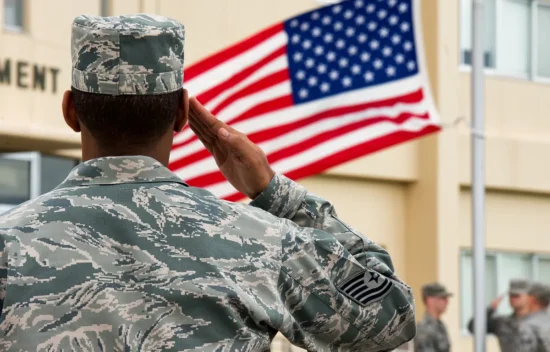 External Post
External PostShould Families Discuss Politics at Thanksgiving Dinner?

Every November, millions of American families gather for an evening of gratitude, turkey dinner, and—oftentimes—tense political disagreements. Thanksgiving dinners are humorously known for stirring controversial topics, but many families do prohibit political/controversial topics at the dinner table. Supporters of political discussions at Thanksgiving dinner see them as opportunities to come to civil disagreements, foster understanding, and practice democratic discussion in a welcome environment. Others, however, often see these conversations as straining, divisive, and even antithetical to the spirit of democracy. With Thanksgiving around the corner, many families are reevaluating their dinner table rules.
Supporters of discussing politics at Thanksgiving dinner often argue that these conversations provide a chance to engage respectfully with relatives who hold different viewpoints or whose opinions they haven’t heard. They believe that, when approached thoughtfully, such discussions can help strengthen relationships, encourage empathy, and even build cross-generational understanding. Many also argue that, since politics affect everyone, it’s important that family dinners replicate real-world conversations, no matter how contentious they might be. Proponents also note that families are one of the few places where people can practice civil discourse and embrace principles of democracy without the pressures of public debate.
Opponents argue that political discussions at Thanksgiving dinner often lead to unnecessary tension, discomfort, and/or strained family dynamics. They argue that these topics divide families rather than foster unity, undermining the holiday’s focus on gratitude, connection, and shared celebration. Many also point out the generational gaps and age differences across the dinner table, arguing that it can result in power dynamics that are not conducive to productive disagreement. Furthermore, opponents argue that even if the political discussions don’t get divisive, raising contentious issues during a holiday about gratitude can raise stress levels and leave family members overwhelmed or emotionally exhausted. Some opponents recognize that while politics are important and that civil discourse is essential to democracy, the Thanksgiving dinner table might not be the appropriate setting.
So, what do you think? Should Families Discuss Politics at Thanksgiving Dinner? Students can answer, “Yes, they should;” “No, they should not;” or a nuanced answer in between! Be sure to submit your responses by December 4 to be considered for this week’s contest.
Note: Ideal Think the Vote responses include the following:
- Address the question asked in a thoughtful and meaningful manner
- Use cited facts and constitutional arguments when appropriate to support their answers
- Are expressed in cohesive sentences and are free of distracting spelling, punctuation, and grammatical errors
- They address counterarguments and opposing concerns in a respectful manner
- They organize their answer in a manner that flows logically and reads clearly
JOIN THE DEBATE BELOW FOR A CHANCE TO WIN A $1,000 CASH SCHOLARSHIP!
For this question, BRI will be giving away two $25 gift cards, one to each person providing the best defense of each side of the debate. Both students will also win BRI swag. Each student winner will also be entered for a chance to win a grand prize of a $1,000 cash scholarship. Additionally, the referring teachers for both students will each win a $25 gift card and BRI swag.
This question will run from 11/20/25 to 12/4/25, so be sure to submit your answers in time to be considered for our prizes!




